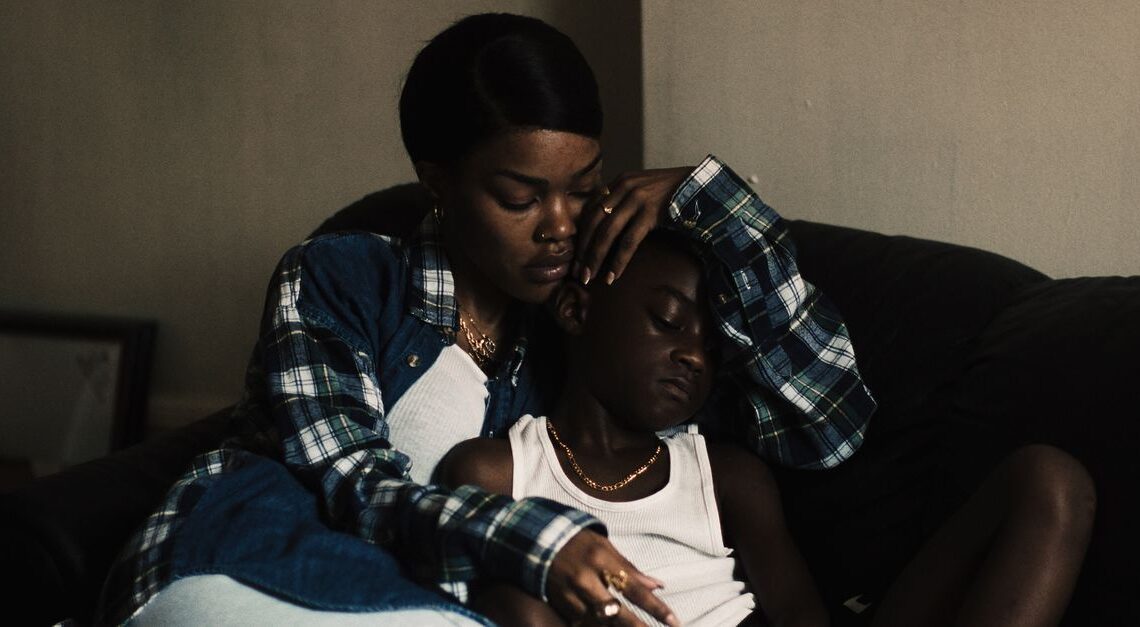Anyone who’s followed the multi-hyphenate talent that is Teyana Taylor knows that she can easily chameleon when she needs to, from harnessing her sexuality for a music video to being painfully honest on reality TV. Most recently, she’s channeled the nuanced role of a single mother in New York on a complicated journey of redemption and the restoration of a family structure.
Taylor stars as Inez de la Paz in filmmaker A.V. Rockwell’s “A Thousand and One,” which hits theaters nationwide on March 31. The movie, which has already won a Sundance Film Festival award, offers a compassionate depiction of what it’s like for modern-day Black women raising children while battling financial strife, housing insecurity and mental health challenges. Rockwell peels back the many layers of Black motherhood in a manner that leaves even Black women examining just how deeply they’ve internalized stereotypes that shape their identities.
“It was so important to me that this character speaks for underrepresented Black women, specifically because I think that even though we are a community in which a sisterhood exists, in many ways, underprivileged Black women still feel the most ostracized,” Rockwell says.
The filmmaker, born and raised in New York City, uses the gentrifying landscape there as a backdrop to tell the story of a young, “free-spirited” mother who kidnaps her son from foster care and fights to raise him with very little money.
The intentionality of everything — from the era (’90s Harlem) to the main character’s distinct struggles — challenges the viewer to reevaluate what they think they know about disadvantaged Black mothers, ultimately revealing how we navigate motherhood despite shattered support systems. This is an essential story, especially at a moment when the lack of support for Black women is all too apparent in real life, in the form of still-surging maternal mortality rates and mental health challenges.
Rockwell tells me that when she conjures the sentiments of iconic Black films that came out in the ’90s, women like Inez were represented as two-dimensional or simple — or as a necessary but “innately problematic” support system.
Throughout the film, I found myself praying Inez would catch a break. I felt her anguish, and at certain points, I realized that what I was feeling was not just an empathetic response but the frustration I’ve felt in my own experience with motherhood bubbling up. While Black mothers are…
Click Here to Read the Full Original Article at TV & Film…

